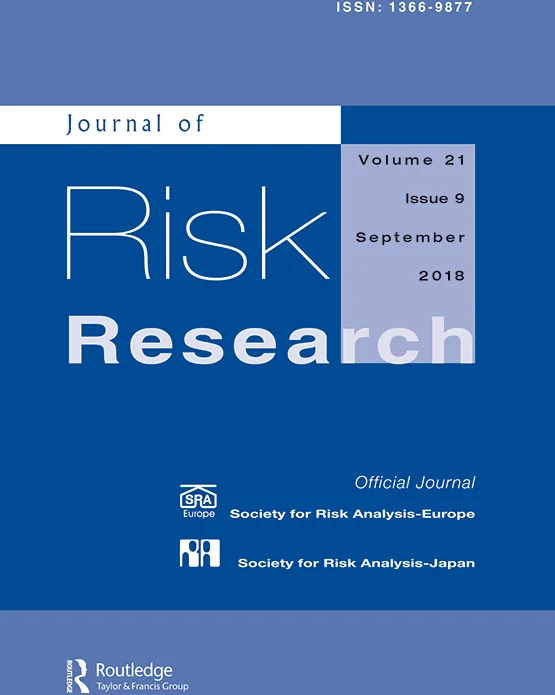Misinformation and the Paradox of Trust during the covid-19 pandemic in the U.S.: pathways to Risk perception and compliance behaviors
IF 1.7
4区 管理学
Q1 SOCIAL SCIENCES, INTERDISCIPLINARY
引用次数: 0
Abstract
Abstract As declared “infodemic” by the World Health Organization, the proliferation of Covid-19 misinformation has posed a significant challenge to public health efforts to tackle the pandemic. Despite initial evidence on the association between misinformation and behavior, researchers have yet to fully identify intervening variables to account for the behavioral effects of Covid-19 misinformation. To address this question, this study aims to examine whether and how consuming misinformation would predict public trust in health and political institutions, and in turn, shape risk perception and adherence to preventive behaviors. We conducted a web-based survey using a nationally representative sample of 1,400 U.S. adults in October 2020. We found that Covid-19 misinformation exposure was linked to lower trust in public health experts but higher trust in government, which led to a decrease in the perceived severity of Covid-19 and less compliance with public health guidance. Our findings uncover the complex social and psychological processes by which misinformation consumption undermines public health efforts during the pandemic crisis.美国新冠肺炎大流行期间的错误信息和信任悖论:风险认知和合规行为的途径
摘要正如世界卫生组织宣布的“信息传播”,新冠肺炎错误信息的扩散对应对疫情的公共卫生努力构成了重大挑战。尽管有初步证据表明错误信息与行为之间存在关联,但研究人员尚未完全确定干预变量,以解释新冠肺炎错误信息的行为影响。为了解决这个问题,本研究旨在检验消费性错误信息是否以及如何预测公众对卫生和政治机构的信任,进而影响风险感知和对预防行为的遵守。2020年10月,我们对1400名美国成年人进行了一项具有全国代表性的网络调查。我们发现,新冠肺炎错误信息暴露与对公共卫生专家的信任度较低,但对政府的信任度较高有关,这导致新冠肺炎的严重程度降低,对公共卫生指导的遵守程度降低。我们的研究结果揭示了在疫情危机期间,错误信息消费破坏公共卫生努力的复杂社会和心理过程。
本文章由计算机程序翻译,如有差异,请以英文原文为准。
求助全文
约1分钟内获得全文
求助全文
来源期刊

Journal of Risk Research
SOCIAL SCIENCES, INTERDISCIPLINARY-
CiteScore
12.20
自引率
5.90%
发文量
44
期刊介绍:
The Journal of Risk Research is an international journal that publishes peer-reviewed theoretical and empirical research articles within the risk field from the areas of social, physical and health sciences and engineering, as well as articles related to decision making, regulation and policy issues in all disciplines. Articles will be published in English. The main aims of the Journal of Risk Research are to stimulate intellectual debate, to promote better risk management practices and to contribute to the development of risk management methodologies. Journal of Risk Research is the official journal of the Society for Risk Analysis Europe and the Society for Risk Analysis Japan.
 求助内容:
求助内容: 应助结果提醒方式:
应助结果提醒方式:


